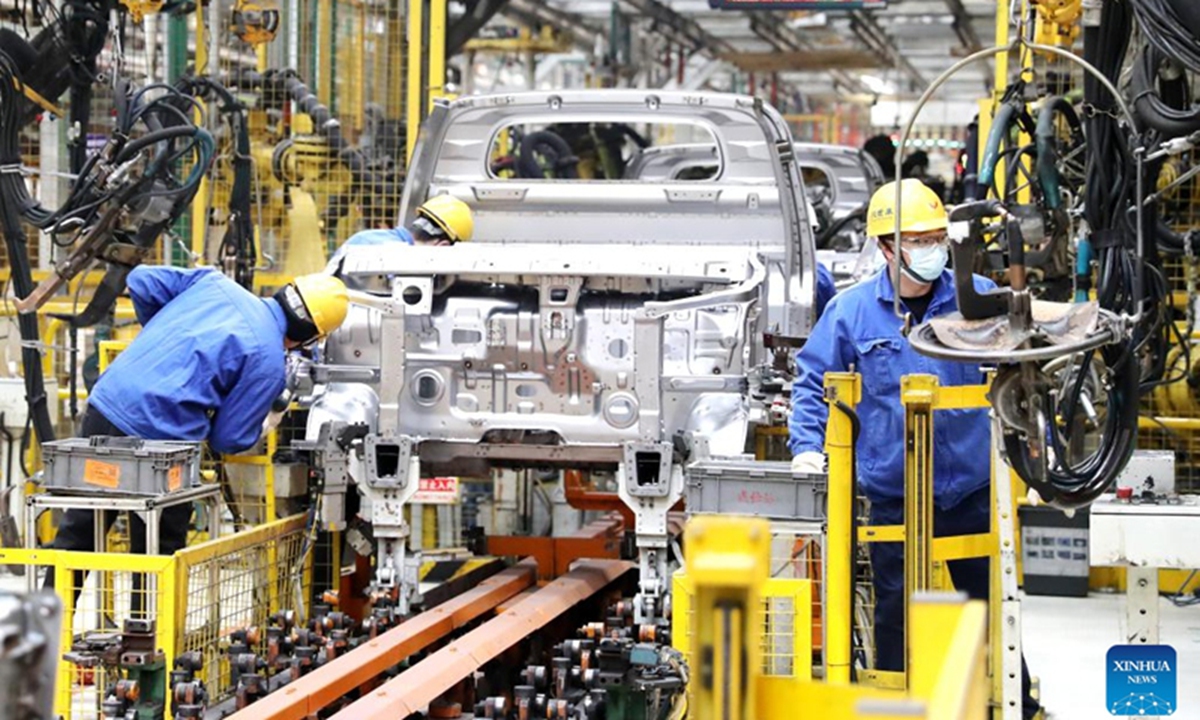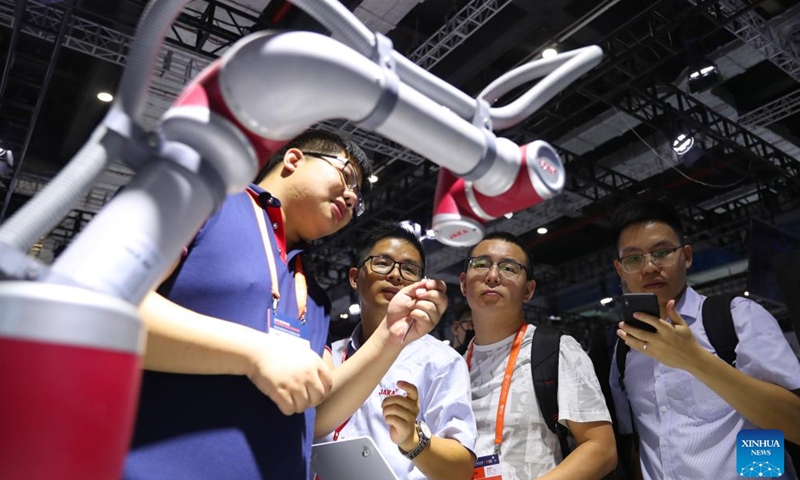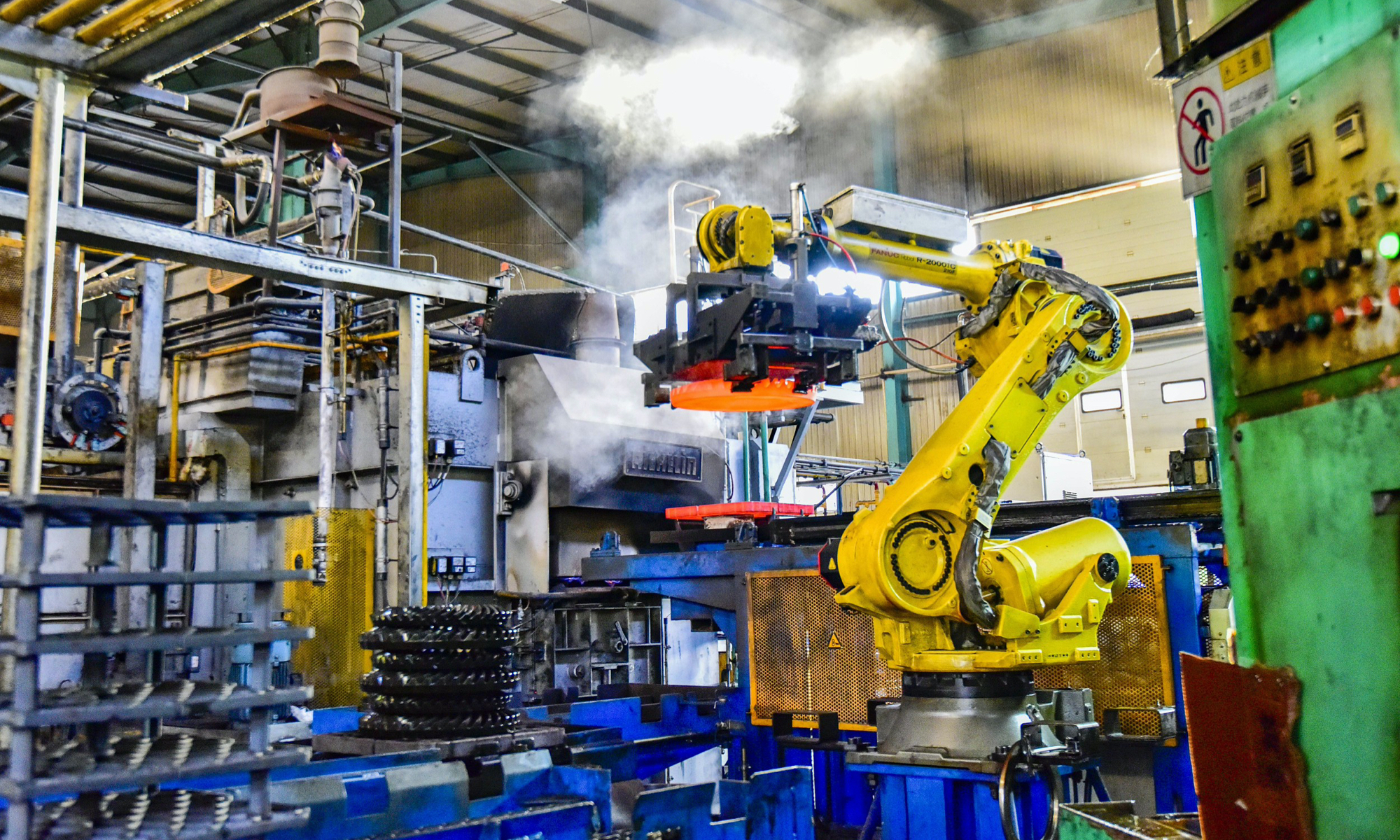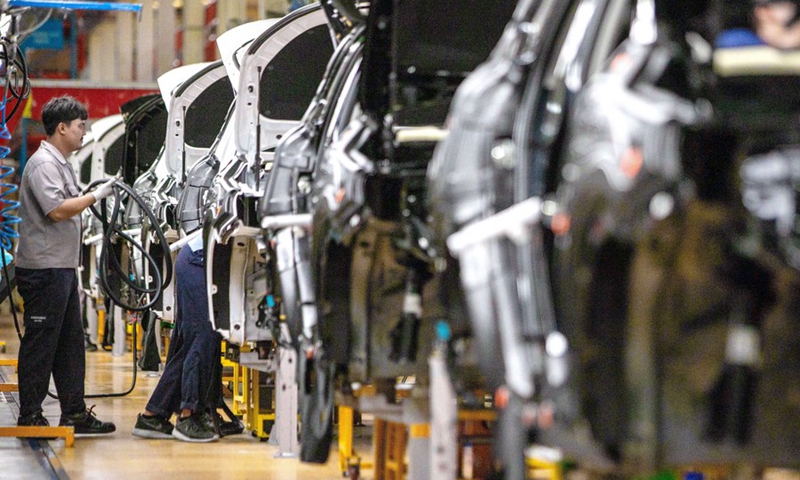Removal of restrictions on foreign investment access to China’s manufacturing sector is vital to combat ‘decoupling’

File photo: Xinhua
Among the eight major steps announced at the third Belt and Road Forum for International Cooperation to support high-quality Belt and Road cooperation, the removal of all restrictions on foreign investment access in the manufacturing sector is undoubtedly one of the most noteworthy items.This measure is a milestone for China's manufacturing industry to develop international competitiveness in an open environment and a new stage. It is a significant step for China to counter the international anti-China forces' plot of "decoupling" from China. It is also a landmark event for China to effectively assume the role of a global leader in free trade.
The reported investigations into the Taiwan island-based enterprise Foxconn do not mean that the Chinese mainland has changed its policy of encouraging businesses and enterprises from the Taiwan island to legally operate in the mainland.
Protecting the legitimate rights and interests of enterprises and encouraging investment does not mean that companies can override tax, land, environmental, and other related regulations. It is understandable that Foxconn has received preferential treatments due to its scale and other advantages, but this does not mean Foxconn can violate laws and regulations.
From a long-term perspective of sustainable development, the focus of China's economic policies gradually shifts from promoting its industries to catch up to maintaining leading advantages of its manufacturing sector. To reach an optimal state of keeping high level of two-way openness, China should learn from the lessons of Western countries where economic populism has led to the loss of manufacturing advantages, and continuously improve the efficiency and vitality of the manufacturing industry.
The position of the manufacturing industry in the Chinese economy is evident. In the first three quarters of 2023, China's GDP reached 91.3 trillion yuan ($12.5 trillion), with the manufacturing industry accounting for over 27 percent at 24.8 trillion yuan. In comparison, the second largest sector, wholesale and retail trade, had a scale of 8.8 trillion yuan, equivalent to 35 percent of the manufacturing industry.
The manufacturing industry is not only the largest sector among various industries in China, but also serves as the foundation for many other sectors. China's economy is founded on the reliance of the real economy, rather than the virtual economy. China aims to maintain, consolidate, and enhance the competitiveness and international status of its manufacturing industry in an open environment.
As China's domestic industries continue to mature, the country has successfully achieved its goal of catching up with industrialization progress over the past 70 years. The majority of industries have now evolved from being immature and apprehensive of competition with foreign companies. However, in order to sustain their vitality and ensure further growth, it is imperative to introduce new competitive pressures.
In this context, China needs to constantly keep up with the times and ensure a smooth transition from emphasizing the promotion of domestic immature industries to emphasizing the expansion of openness. This includes opening up sales markets, investment markets, and equity markets, and utilizing international investments on a larger scale to maintain the cost competitiveness of domestic manufacturing and other industries.
By sharing opportunities for economic growth, China can guide external trading partners to align with China's market and rules. Through introducing competitive pressures, China can strengthen domestic market competition and maintain the vitality of domestic industries.
This shift is based on the foundation of China's total economic size and strength. At the macro level, as the world's second-largest economy, China's domestic market is already sufficient to withstand external competition.
Against the backdrop of international anti-China forces attempting to impose a "new Cold War" on China, breaking their attempts to "decouple" and disconnect external markets from China has become a matter of life and death for the Chinese economy.
Today, with China's own competitiveness greatly enhanced and Western countries such as the US continuously attempting to tighten restrictions to limit their advanced manufacturing investments in China, the main concern should be that foreign investment in the advanced manufacturing sector in China may be blocked.
The fundamental solution to address this severe challenge lies in continuously improving China's business environment, expanding openness, enhancing efficiency, and attracting advanced manufacturing capabilities from around the world.
It is essential to maintain and expand the production layout in China, and consolidate and enhance China's position as a global manufacturing center and highland. The comprehensive removal of market access restrictions for foreign investment in the manufacturing sector is an indispensable part of this strategy.
As the world's largest exporter and an increasingly prominent foreign direct investment destination, China's proactive efforts to open up to the outside world can enhance its confidence in negotiation with its trading partners.
In the past nearly eighty years since World War II, the US has long played the role of global champion of free trade. However, in the face of "anti-globalization" wave, the US is increasingly unwilling and lacking the ability to continue playing this role. The evolving systems and demographic trends of the EU and Japan are also reinforcing their tendencies toward trade protectionism. Against this backdrop, only China can assume the role of global champion of free trade.
The author is a research fellow at the Chinese Academy of International Trade and Economic Cooperation of China's Ministry of Commerce. bizopinion@globaltimes.com.cn



